Director of Nghe An Department of Home Affairs answers questions about administrative unit arrangement and plan for nearly 800 redundant commune-level officials and civil servants
In the period of 2023 - 2025, Nghe An plans to rearrange 92 commune-level administrative units to establish 43 new units, 1 administrative unit to adjust part of its natural area and population; thereby, it is expected that there will be a surplus of nearly 800 people.
On the morning of July 11, the 21st session of the 18th Provincial People's Council conducted questions and answers in the field of Home Affairs.
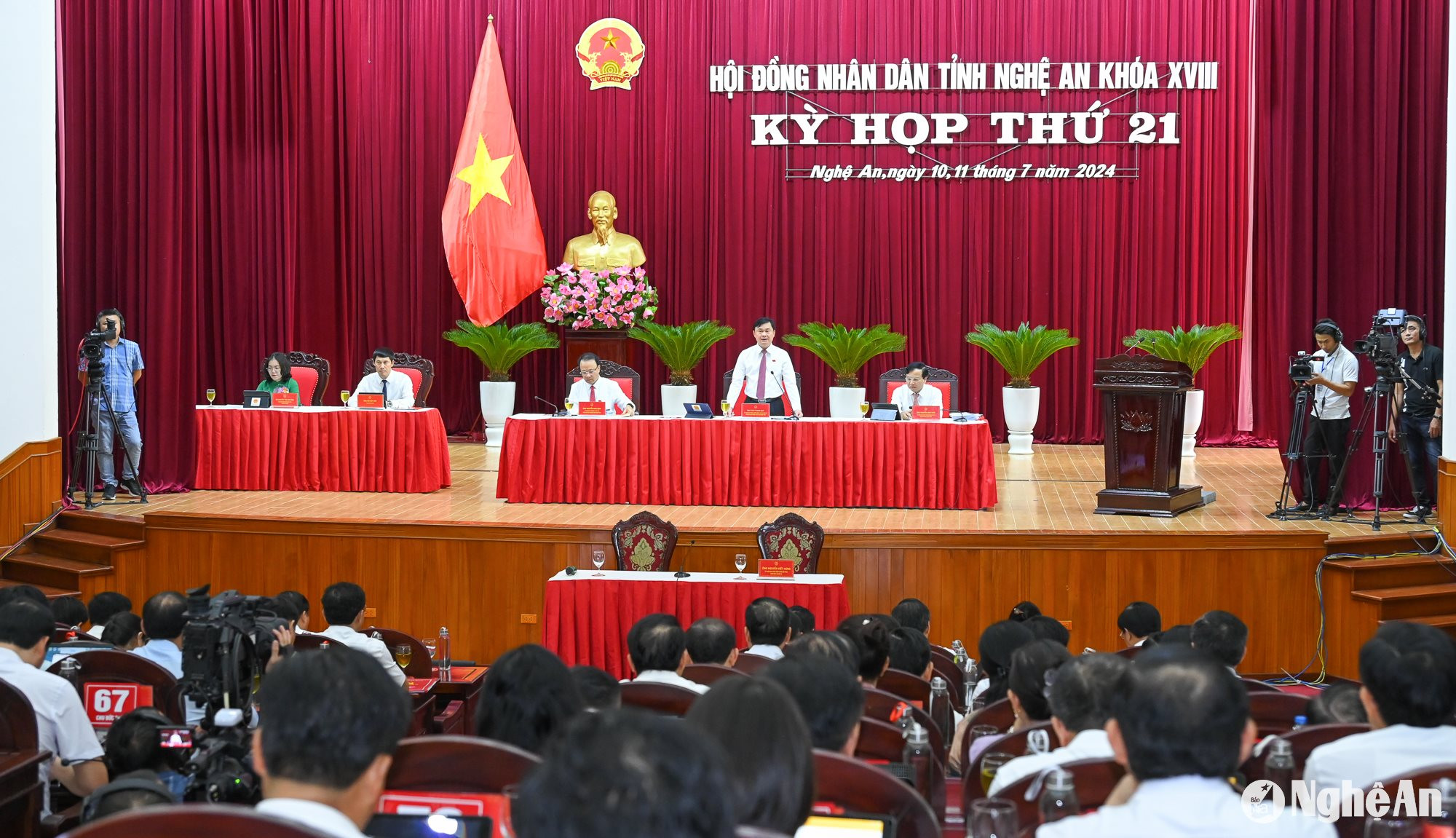
Comrades: Thai Thanh Quy - Member of the Party Central Committee, Secretary of the Provincial Party Committee, Chairman of the Provincial People's Council, Head of the Provincial National Assembly Delegation; Nguyen Nam Dinh - Member of the Provincial Party Standing Committee, Permanent Vice Chairman of the Provincial People's Council; Nguyen Nhu Khoi - Member of the Provincial Party Executive Committee, Vice Chairman of the Provincial People's Council chaired and ran the session.
Attending the meeting were comrades: Nguyen Van Thong - Standing Deputy Secretary of the Provincial Party Committee; Hoang Nghia Hieu - Deputy Secretary of the Provincial Party Committee; Vo Thi Minh Sinh - Member of the Provincial Party Committee Standing Committee, Chairman of the Vietnam Fatherland Front Committee of Nghe An province, comrades of the Provincial Party Committee Standing Committee, members of the Provincial Party Committee Executive Committee, Vice Chairman of the Provincial People's Committee, Deputy Head of the Provincial National Assembly Delegation, delegates of the Provincial People's Council; leaders of departments, branches and localities.
Reduce 1 town and 48 communes, wards and towns
In the period of 2023 - 2025, Nghe An has 1 district-level administrative unit that does not meet the prescribed criteria and is subject to rearrangement, which is Cua Lo town. The Provincial People's Committee has developed a plan to merge the entire Cua Lo town and adjust part of Nghi Loc district, including 4 communes: Nghi Xuan, Phuc Tho, Nghi Thai, Nghi Phong, into Vinh city.
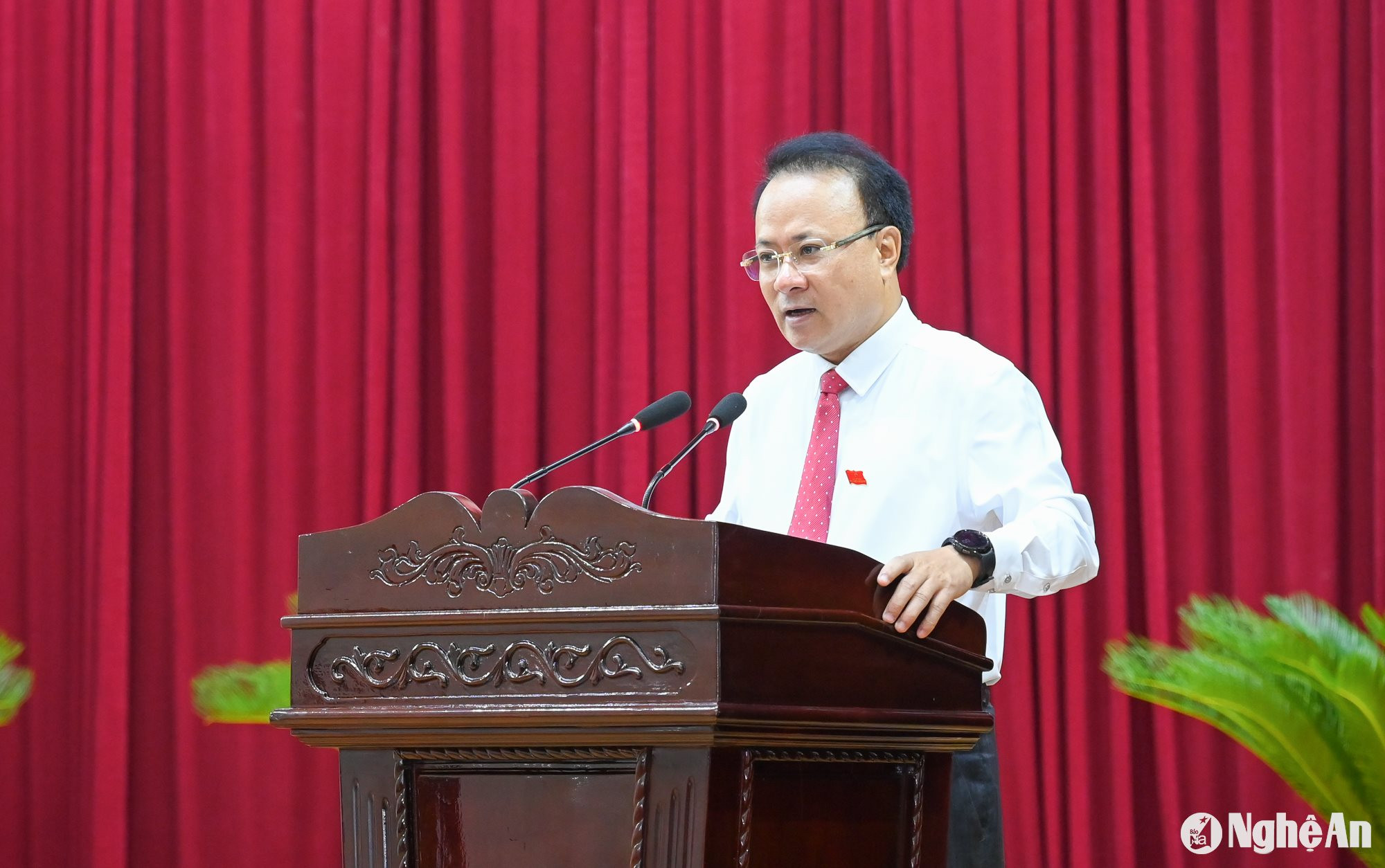
Nghe An from 21 district-level administrative units, after the arrangement will have 20 district-level administrative units (17 districts, 1 provincial city and 2 towns), reducing 1 district-level administrative unit, which is Cua Lo town.
At the commune level, Nghe An will reorganize 92 administrative units to establish 44 administrative units (of which 43 newly established units have 1 administrative unit with partial adjustment of natural area and population). After the reorganization, the whole province will reduce 48 administrative units, from 460 commune-level administrative units (411 communes, 32 wards, 17 towns) to 412 commune-level administrative units (362 communes, 33 wards, 17 towns).
Currently, the projects on expanding the administrative boundaries of Vinh city and rearranging commune-level administrative units in the province have been submitted to the Ministry of Home Affairs for appraisal and submission to the Government. It is expected that in October 2024, based on the Government's submission, the National Assembly Standing Committee will consider and approve them, creating a legal basis for the province to implement.
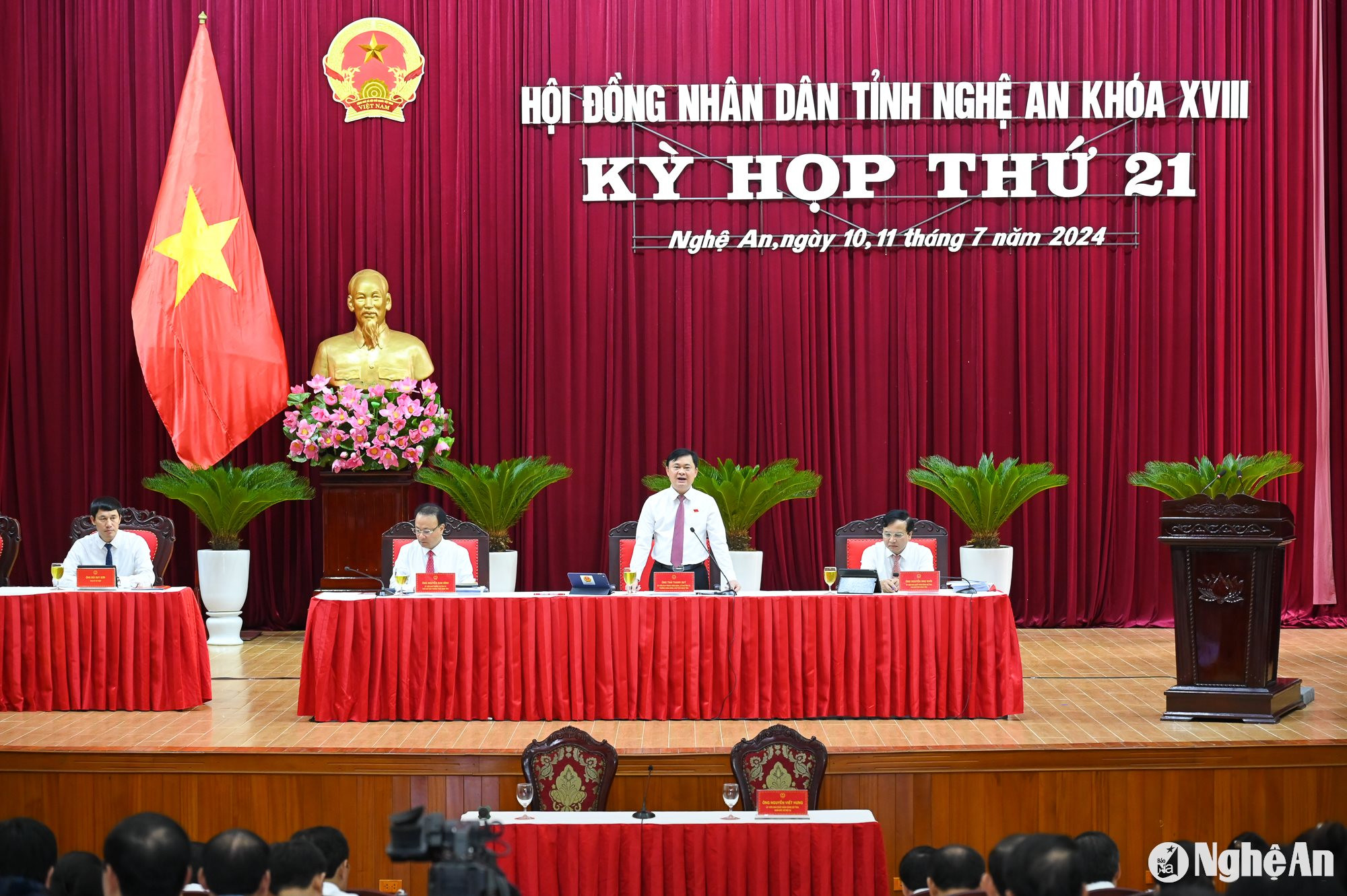
According to calculations by the Department of Home Affairs, when implementing the arrangement of administrative units at district and commune levels according to the above plan, it is expected that there will be a surplus of more than 1,000 cadres, civil servants and public employees.
Specifically, the existing staff, civil servants and public employees of Vinh city and Cua Lo town before the arrangement was 623 people, the planned arrangement of staff, civil servants and public employees was 416 people, the surplus number was 207 people.
At the commune level, after the reorganization, it is expected to continue to arrange 913 people (514 cadres, 399 civil servants) in new communes according to regulations; there will be a surplus of 799 people (374 cadres, 425 civil servants).
The number of redundant cadres, civil servants and public employees after the merger at district and commune levels will be gradually reduced within 60 months as prescribed.
It is expected that 541 part-time workers at the commune level will be arranged; the remaining surplus will be laid off and their benefits will be resolved according to the regulations of the Provincial People's Council Resolution on supporting redundant cadres, civil servants and part-time workers due to administrative unit rearrangement.
Roadmap to resolve surplus staff within 5 years
At the question and answer session, Director of the Department of Home Affairs Nguyen Viet Hung answered the delegates' opinions related to the arrangement of commune-level administrative units in Nghe An province, period 2023 - 2025 and the arrangement and settlement of regimes and policies for cadres, civil servants and redundant workers after the arrangement of commune-level administrative units.
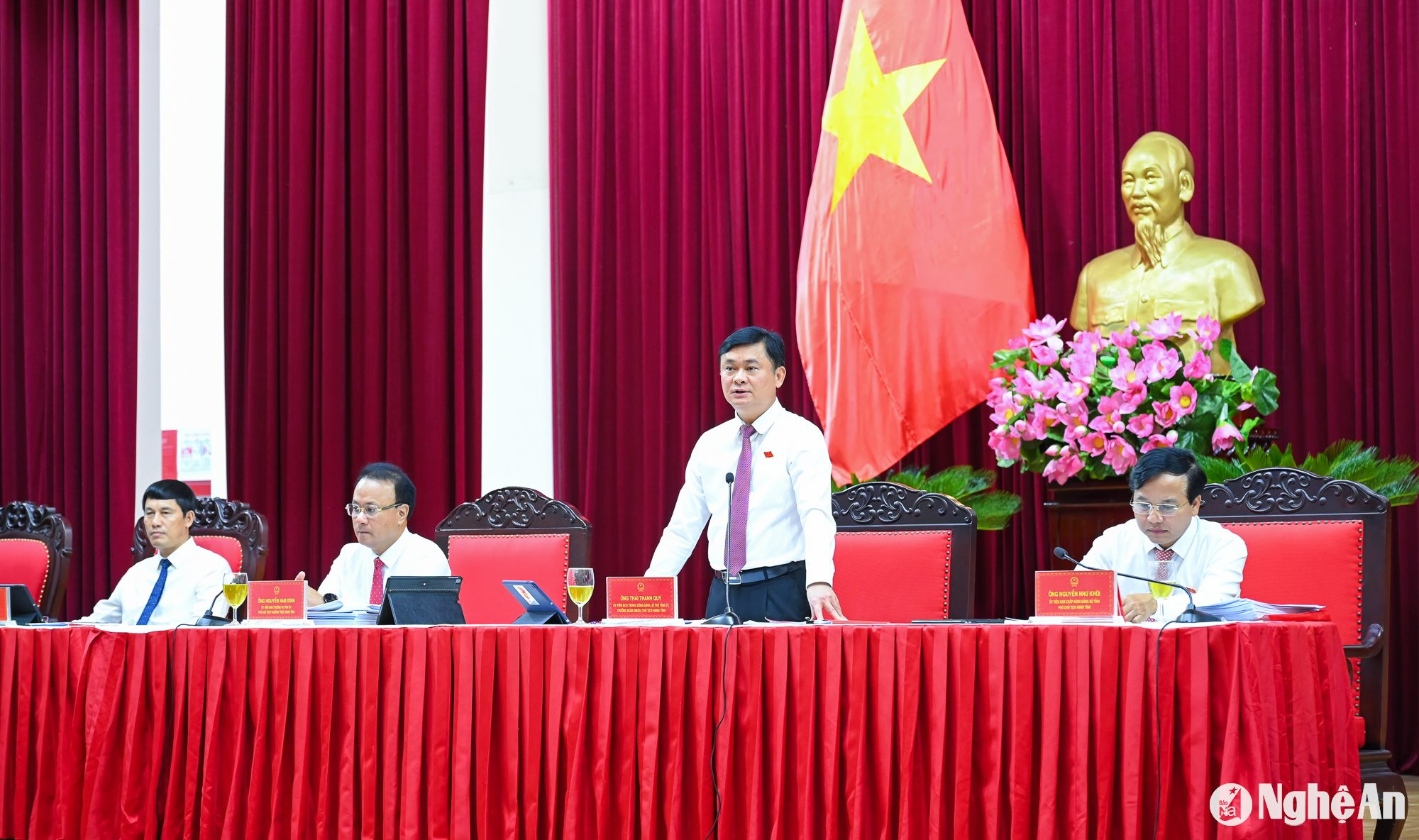
The Director of Nghe An Department of Home Affairs said that for the number of redundant cadres, civil servants and public employees of 207 people after the merger of Cua Lo town into Vinh city, a plan and roadmap for reduction has been developed, specifically 44 people in 2025, 39 people in 2026, 42 people in 2027, 41 people in 2028 and 2029 each year.
For the 799 redundant commune-level officials and civil servants after the rearrangement, the plan and roadmap for reduction are specifically 297 people in 2025, 129 people in 2026, 111 people in 2027, 119 people in 2028 and 143 people in 2029.
More than 1,000 district- and commune-level officials, civil servants, and public employees will be reduced in the following forms: retirement at the right age; retirement according to Decree 26/2015/ND-CP, Decree 29/2023/ND-CP; transfer to other jobs or other units when there is a shortage of staff.
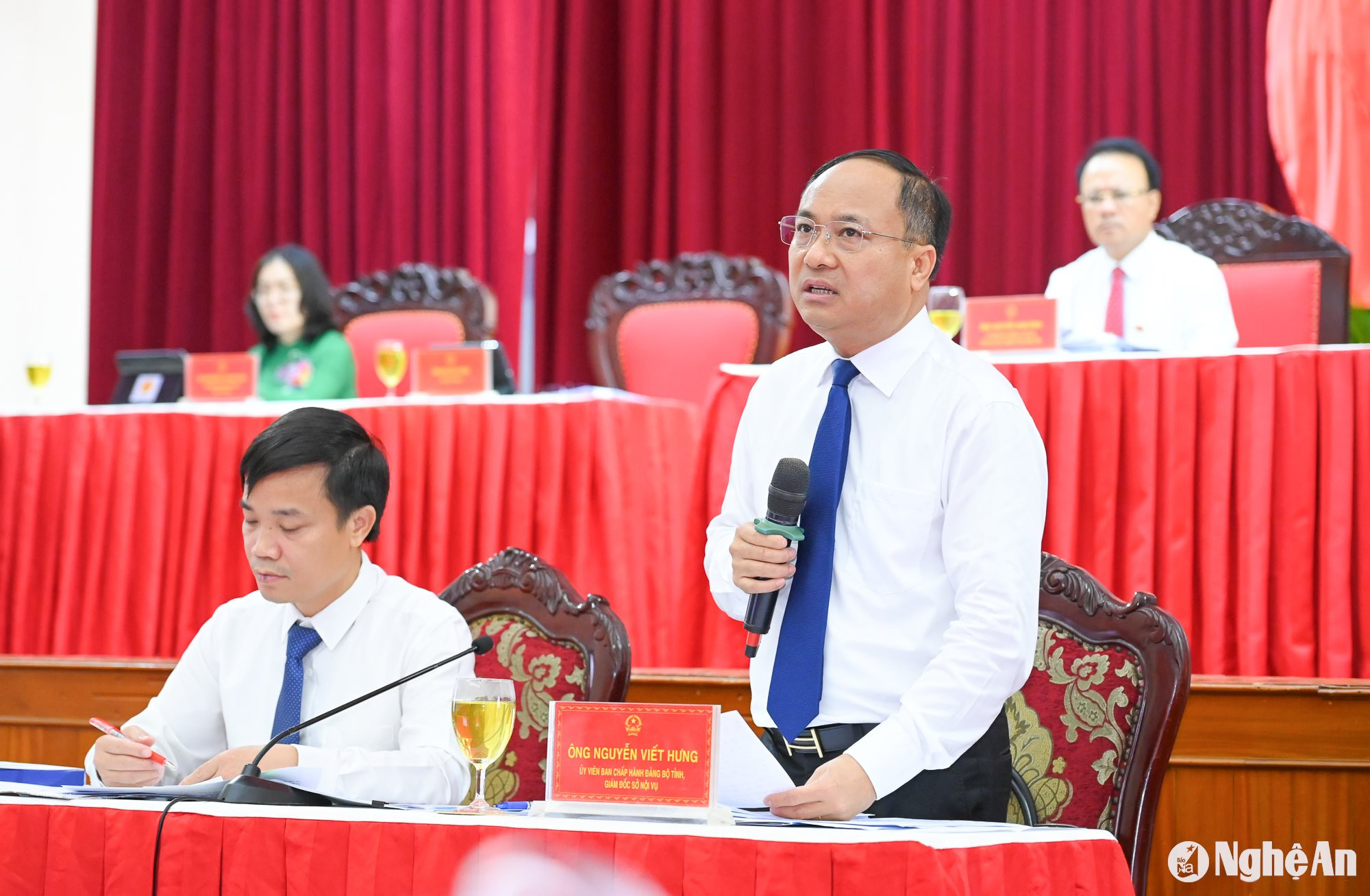
“This is a roadmap and plan that has been specifically analyzed and compiled during the project development process based on proposals from localities and units. After the Resolution of the National Assembly Standing Committee is issued, depending on the actual situation each year, during the implementation process, localities will adjust the plan accordingly, but must ensure that it is resolved within 5 years as prescribed,” said the Director of Nghe An Department of Home Affairs.
No fees or charges are collected when changing documents.
At the working session, 20 delegates spoke, questioned and debated issues surrounding the implementation roadmap, regimes and policies for officials, civil servants and affected people;...
Delegate Nguyen Thi Huong, Delegate Group of Hung Nguyen district, proposed to inform about solutions to facilitate organizations and individuals to change documents conveniently after the administrative unit arrangement.
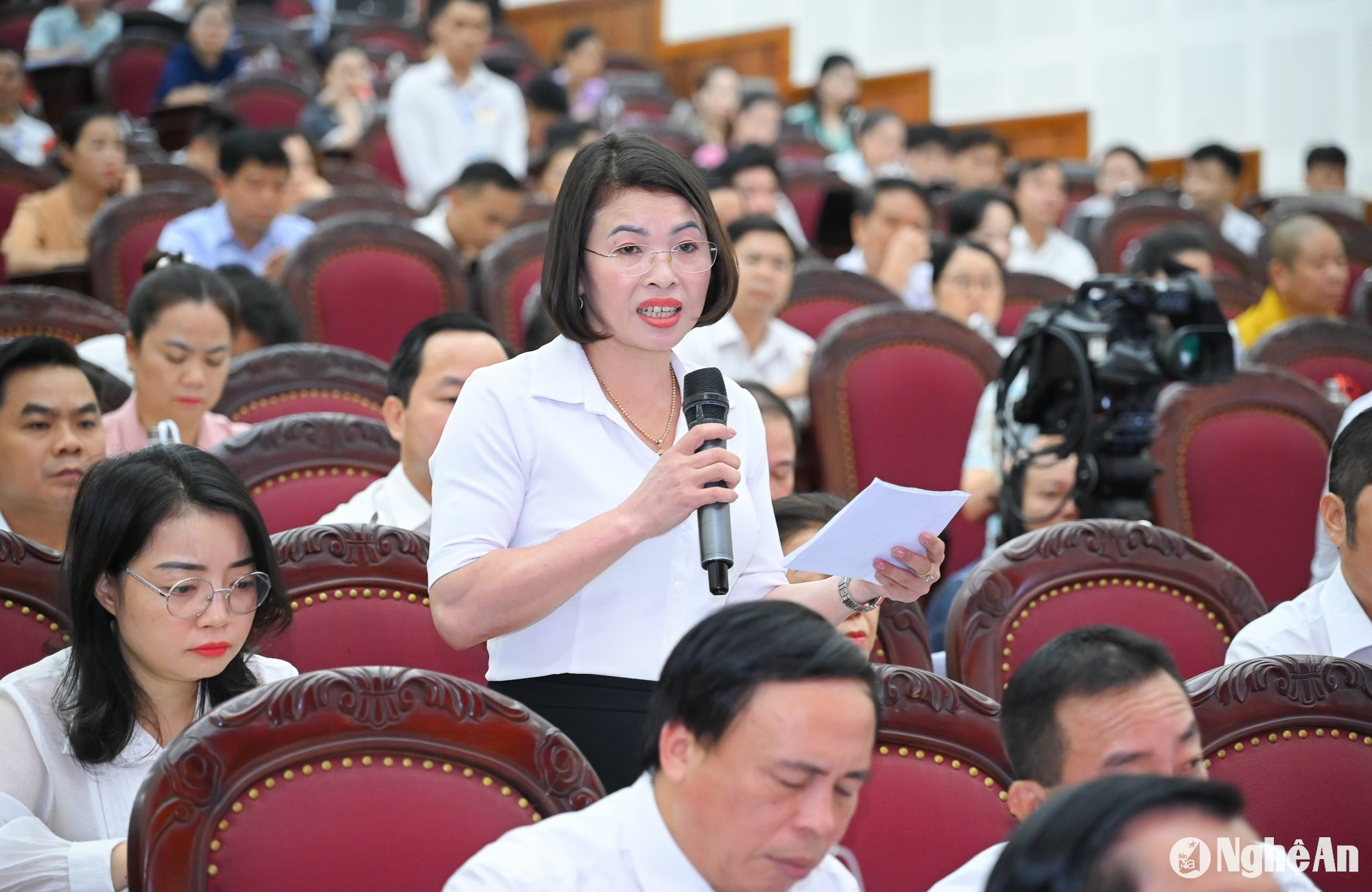
Responding to the delegates, Director of the Department of Home Affairs Nguyen Viet Hung said that there are 3 contents and suggested to promote propaganda so that people can grasp and implement them. Specifically, according to the regulations: Documents that have been issued by competent authorities to individuals, citizens, and organizations before the arrangement according to the old administrative unit, if they have not expired according to regulations, will continue to be used.
The Provincial People's Committee directs the People's Committees at district and commune levels to arrange administrative units to proactively propagate and create favorable conditions for individuals and organizations when carrying out procedures to convert documents and not collect fees when converting due to changes in administrative unit boundaries.
Therefore, after the Resolution of the National Assembly Standing Committee on administrative unit arrangement, the Department of Home Affairs will advise the Provincial People's Committee to issue a Plan to implement the Resolution assigning specific tasks to levels and sectors to perform tasks related to the sector's expertise, related to the arrangement of administrative units at district and commune levels, including document conversion.
Delegate Lu Thi Khuyen asked: How will policies for communes and cadres, civil servants, public employees, and people in communes with special policies merged into communes without special policies be implemented after the merger?
Regarding this content, the Director of the Department of Home Affairs said: Resolution 35/2023/UBTVQH15 on implementing special regimes and policies for district- and commune-level administrative units formed after the rearrangement has specific regulations, accordingly:
When rearranging district-level administrative units without changing the name or boundaries of commune-level administrative units, the commune-level administrative units will still apply the same special regimes and policies as before the rearrangement.
When rearranging commune-level administrative units without changing the scope of hamlets and blocks, the hamlets and blocks will still apply the same special regimes and policies as before the rearrangement.
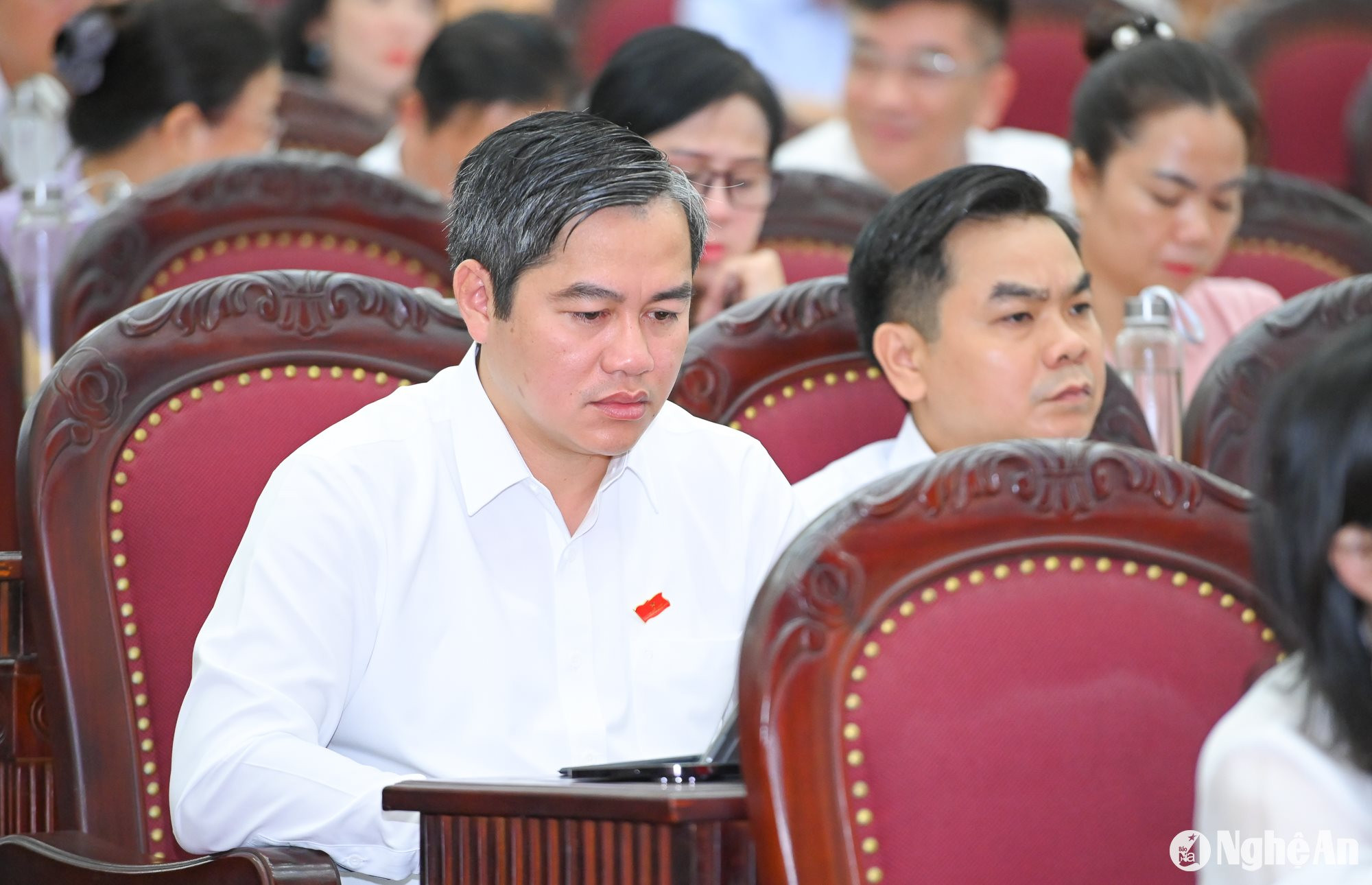
When implementing the arrangement of district and commune-level administrative units that changes the names and boundaries of district and commune-level administrative units, the scope of hamlets and blocks, the application of special regimes and policies is carried out as follows:
People in hamlets and blocks of district- and commune-level administrative units after the rearrangement continue to enjoy special regimes and policies as before the rearrangement until there is another decision by the competent authority.
In case a commune-level administrative unit changes its name or adjusts its status to a district-level administrative unit, commune-level cadres, civil servants, public employees, workers, and salaried people in the armed forces working at that administrative unit shall continue to enjoy special regimes and policies according to the area or region as before the arrangement until there is another decision by the competent authority.
The period of enjoying the special regimes and policies prescribed above is from the effective date of the resolution of the National Assembly Standing Committee on the arrangement of each administrative unit until the competent authority issues a new decision. Within 3 years from the effective date of the resolution of the National Assembly Standing Committee on the arrangement of each administrative unit, the Provincial People's Committee shall review and recognize according to its authority or propose the competent authority to decide and recognize the enjoyment of special regimes and policies for the administrative unit formed after the arrangement...
Sharing the pressure of commune-level officials and civil servants
Referring to the work of the team of communal-level cadres and civil servants, delegate Mong Van Tinh, Que Phong district delegation, asked to know the province's solution to the current situation where each civil servant is in charge of many jobs?
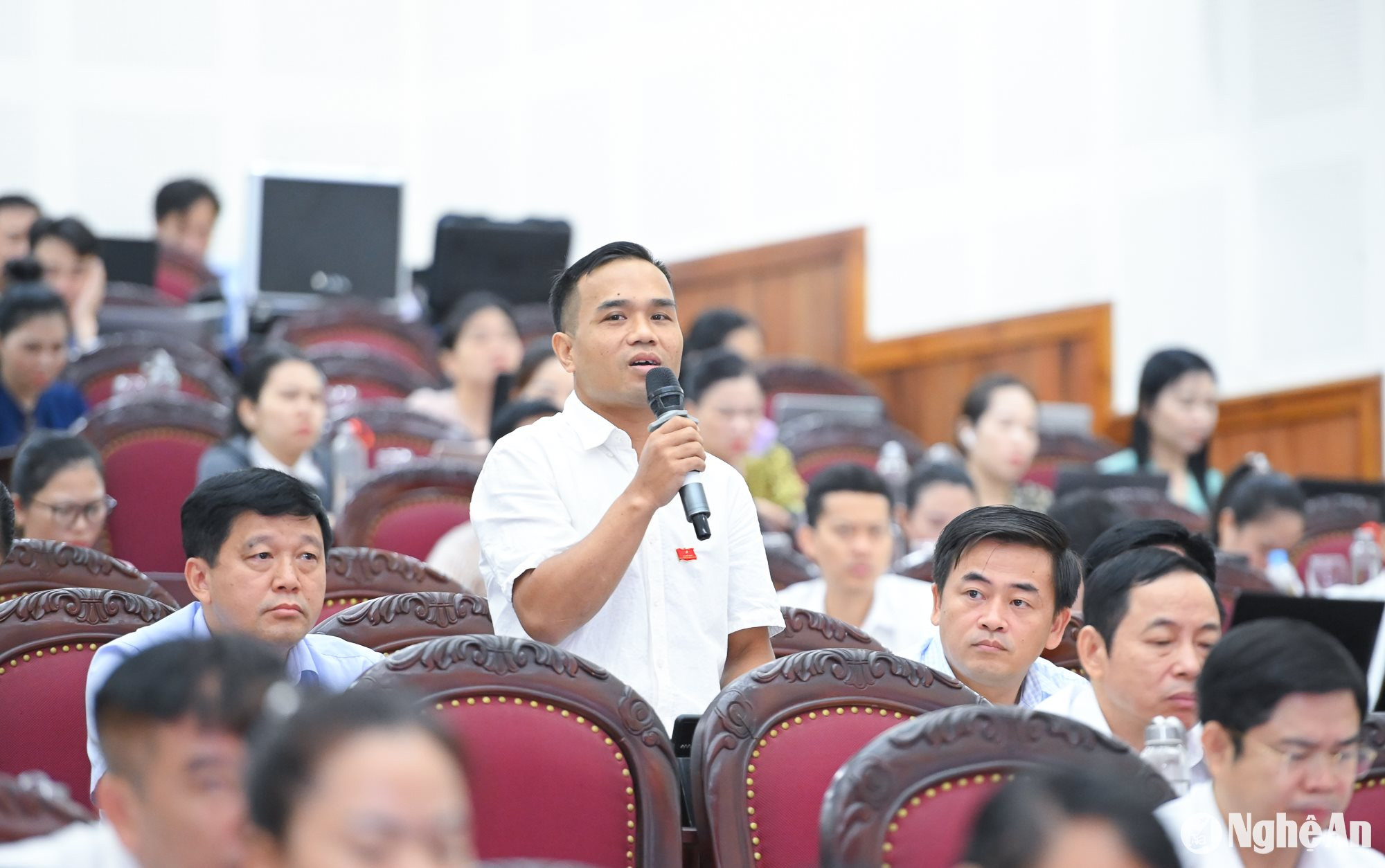
Sharing the work pressure of the communal-level civil servants, however, according to the Director of the Department of Home Affairs, the number and tasks of communal-level cadres and civil servants are currently specifically regulated in Decree 33/2023/ND-CP. Therefore, it is not true that a civil servant holds many tasks, but those tasks are regulated in the Decree. On that basis, communal-level cadres and civil servants exercise their authority properly.
After the above explanation, delegate Mong Van Tinh continued to debate and proposed solutions to help civil servants improve the quality and efficiency of their work in the coming time. Responding to the delegate, the Director of the Nghe An Department of Home Affairs shared the concerns of the delegate and this is also an issue that the industry is concerned about. Therefore, to reduce pressure and improve work efficiency, the important solution is to focus on administrative reform; at the same time, based on the decentralized tasks, the People's Committees of the districts will appropriately adjust the number of civil servants between stages to ensure work efficiency; associated with training and education and have appropriate forms of encouragement and motivation.
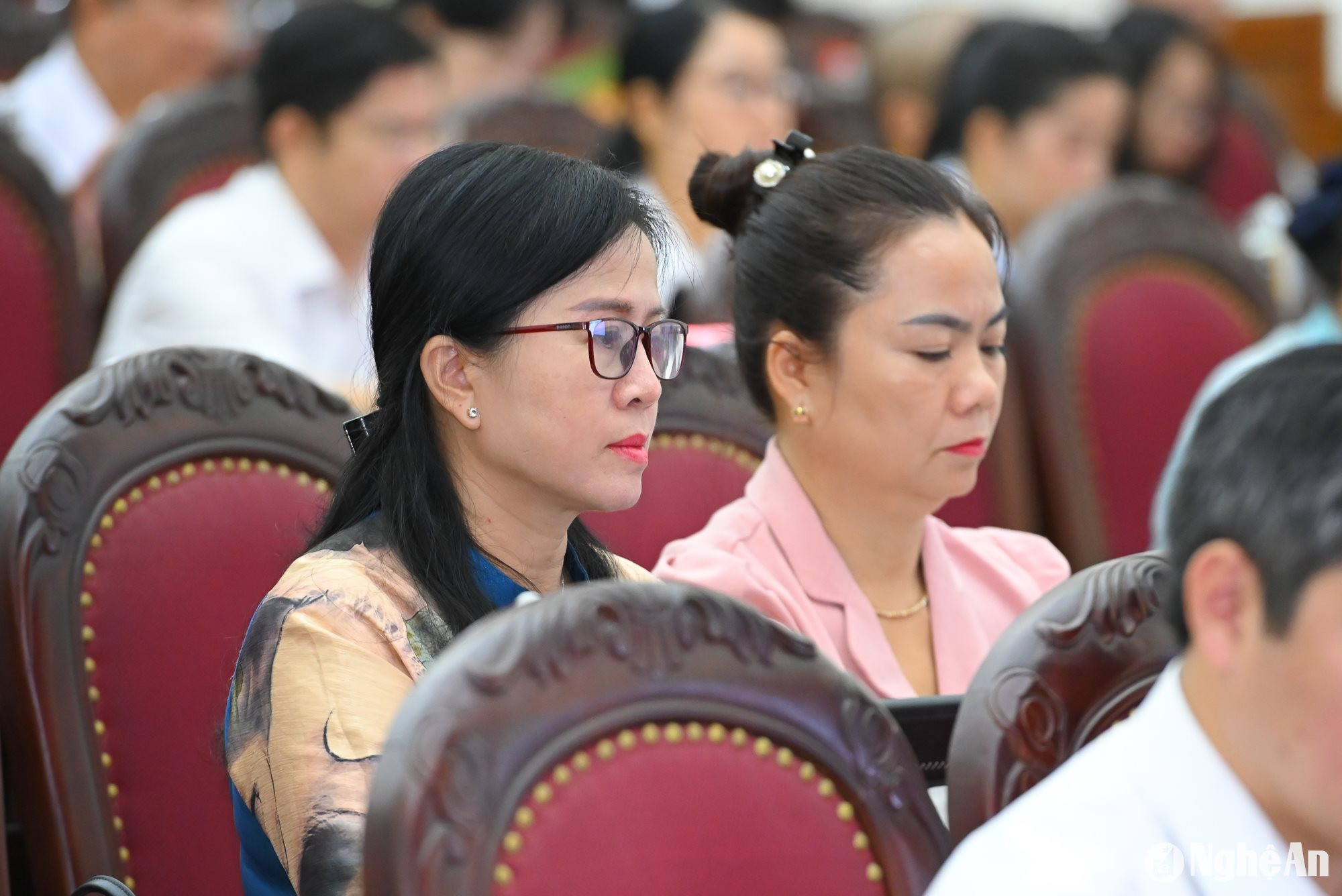
Responding to delegate Le Thi Kim Chung, Quynh Luu district delegation, about the policy for redundant non-professional staff after the rearrangement, the Director of the Department of Home Affairs said that the Provincial People's Committee has assigned the Department of Home Affairs to preside over the consultation on the Resolution on support policies for cadres, civil servants, public employees, workers, non-professional workers and other subjects who are redundant due to the rearrangement of administrative units. The Department of Home Affairs has drafted the Resolution to submit to the Provincial People's Committee at the regular meeting in July 2024 and will submit it to the Provincial People's Council for promulgation before the National Assembly Standing Committee issues the Resolution.
2 lessons learned in naming new administrative units
Referring to the current issues of the past time, delegate Pham Thanh Chung, Tan Ky district delegation expressed his opinion: Recently, the plan to change the name of administrative units when reorganizing in some places has met with many opposing opinions in public opinion, as well as from the affected people, many people have been psychologically affected, causing disruption to daily life, production as well as the thoughts and feelings of the community. The delegate asked, how does the Director of the Department of Home Affairs assess this issue and what is the industry's plan in the coming time?
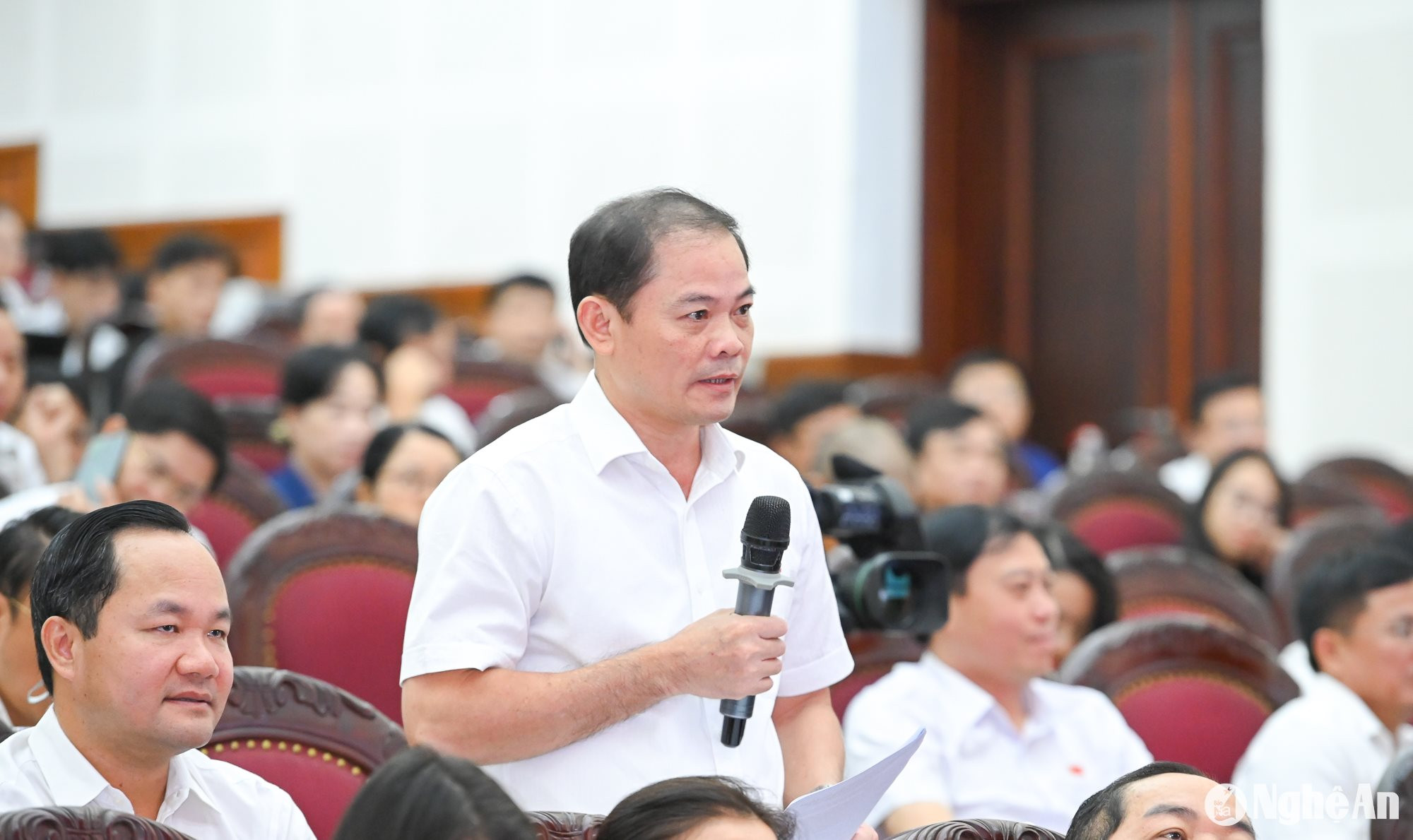
Director of the Department of Home Affairs Nguyen Viet Hung said that recently in all meetings, provincial and industry leaders have requested that localities, when naming units subject to reorganization, pay attention to historical, cultural, traditional, regional, and contiguous factors... to ensure appropriate names; at the same time, encourage taking the name of one of the merged units to minimize the need to change people's document names and must ensure the consensus of over 50% of voters in the relevant localities.
From recent practice, the leader of Nghe An Department of Home Affairs said that first of all, it is necessary to focus on propaganda and mobilization so that people understand the policies and guidelines; before naming, it is necessary to discuss carefully, analyze thoroughly, specifically, and carefully research cultural, traditional, historical, and unique factors to have a meaningful name and gain the consensus of the people.


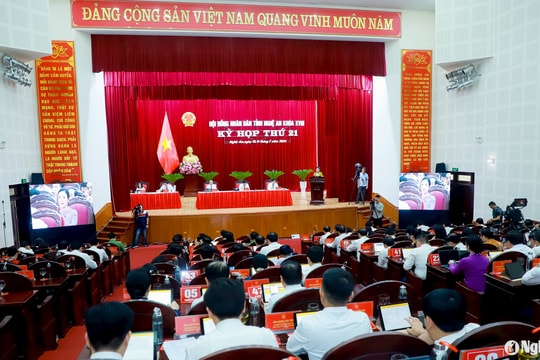
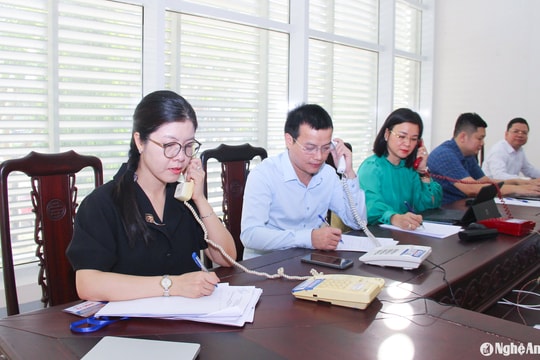
.jpg)
